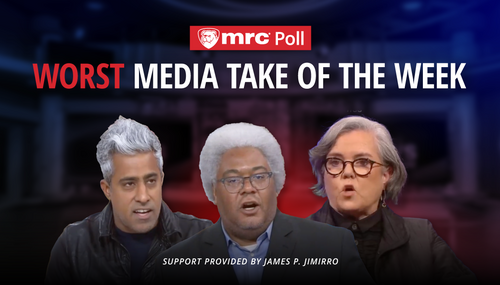In response to several outlets contending with basis that the Associated Press sat on its knowledge that the United States and Iran were conducting secret diplomatic discussions, the AP's Paul Colford has published a "Back Story" item defending its conduct, claiming that it could not "confirm, to its standards, what had happened." My related NewsBusters post is here.
Breitbart had a related item earlier today. In it, Larry O'Connor posted a tweet from a specific person at another news organization indicating that "both had versions of it independently early & were asked to not publish til end of Iran talks." Barring a better explanation from AP than what readers will see after the jump, the tweet by Laura Rozen at the Washington-based, Middle East-focused Al-Monitor presumptively refutes AP's claim that it didn't have enough information to justify publishing a story (if they didn't, why would the government bother to ask them to not publish?). Colford did not address Rozen's relayed claim, even though his item more than likely went up several hours after O'Connor's Breitbart post and roughly 48 hours after Rozen's tweet (depending on its time zone). Colford's full AP post follows the jump (links and italics are in original):
Backstory: Confirming information about secret US-Iran talks
AP’s Sunday story revealing that the U.S. and Iran had held secret talks before the announcement of a nuclear deal contained this paragraph:
The AP was tipped to the first U.S.-Iranian meeting in March shortly after it occurred, but the White House and State Department disputed elements of the account and the AP could not confirm the meeting. The AP learned of further indications of secret diplomacy in the fall and pressed the White House and other officials further. As the Geneva talks appeared to be reaching their conclusion, senior administration officials confirmed to the AP the details of the extensive outreach.
Contrary to a number of accounts since Sunday, AP did not sit on the story for several months. We aggressively pursued the story throughout that period, trying everything we could to get it to the wire. In fact, some of the information we were tipped to in March turned out to be inaccurate.
“A tip is not a story,” said AP Washington Bureau Chief Sally Buzbee. “AP was attempting to confirm, to its standards, what had happened. We published the story when we had the vital details that we needed satisfactorily confirmed.”
To quote from AP’s News Values and Principles:
“The AP routinely seeks and requires more than one source. Stories should be held while attempts are made to reach additional sources for confirmation or elaboration. In rare cases, one source will be sufficient – when material comes from an authoritative figure who provides information so detailed that there is no question of its accuracy.”
Here is Laura Rozen's tweet:
Paul Colford is going to have to explain how talks between Iran and the U.S., the existence of which the AP supposedly couldn't confirm, somehow still became the subject of an "early" (Rozen's word) gag request.
I sure can't, and I doubt that he can.
I contend that if it had been covering any adminstration other than the current one, AP would have reported that it had evidence that such meetings or talks were or had been taking place, and that administration officials (depending on their actual response) either denied their existence, or would not confirm or deny them. We can debate all day and night whether reporting in such a manner is a defensible journalistic tactic (I'm not a big fan of it), but it has happened all the time for as long as I've been following the news, including in AP stories.
Instead, AP and Al-Monitor deliberately kept their readers, listeners, viewers, subscribing news organizations, and the public they claim to serve in the dark. Even more damning, per Rozen — and, again, not refuted by Colford, though he had his shot — did so at the request of a government or the governments involved.
Howard Kurtz at Fox News is also not impressed with AP's conduct:
Media Fumble: Why the AP failed to report the secret US-Iran talks
... Let’s go back to the story. It says the administration “disputed elements of the account,” which perhaps gave the reporters pause about how much they had. But then the AP learned of “further indications of secret diplomacy” in the fall, and ran nothing.
Even a story with one explosive sentence—that secret nuclear talks were going on—would have reverberated with headlines around the globe.
Perhaps the wire service didn’t want to tick off the administration by going with that story, although there’s no mention here of the White House or State Department asking the AP not to publish.
But as the Huffington Post reports, that did happen with another outlet, Washington-based al-Monitor, which specializes in the Middle East. Al-Monitor writes that it found out about the secret discussions in June, but "agreed to hold the story at the administration’s request until the conclusion of the third round of nuclear talks that ended here in a breakthrough."
Laura Rozen, an al-Monitor reporter, tweeted that the AP had also agreed to hold the story until a deal was reached.
Holding a story at a government's request isn't "journalism." But it explains why calling AP "the Administration's Press" continues to be utterly defensible.
Cross-posted at BizzyBlog.com.





